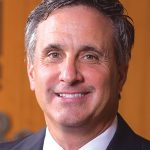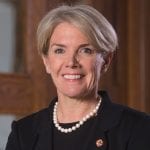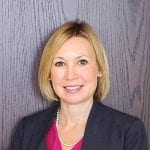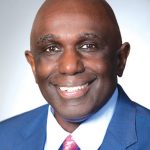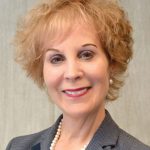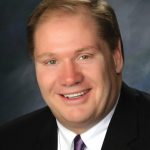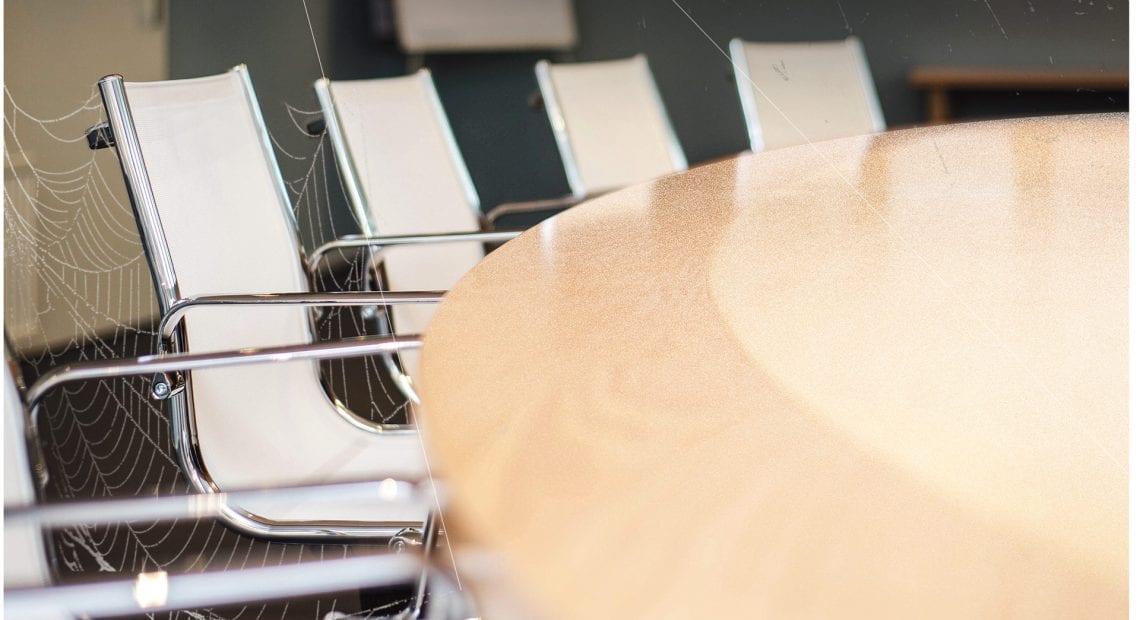
COVID-19: One Year Later
What We’ve Learned, What’s Changed, What’s Changed Forever
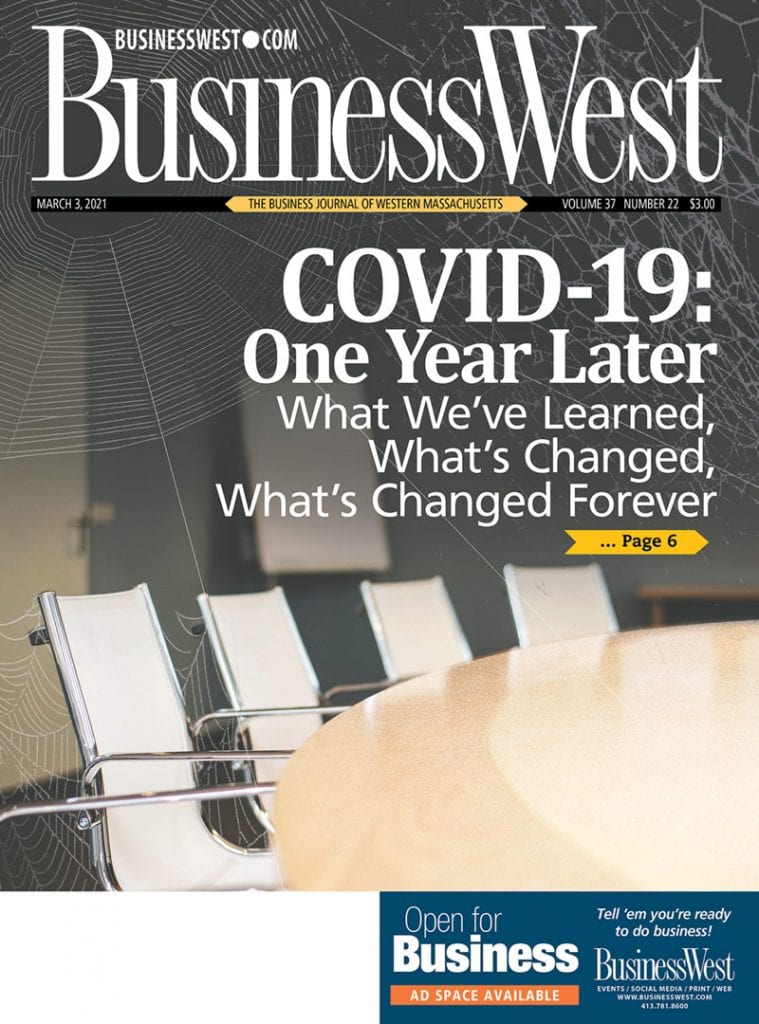
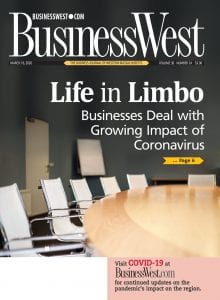 One year ago, the world, or at least our little corner of it, stopped. Completely.
One year ago, the world, or at least our little corner of it, stopped. Completely.
Well, almost completely. Better to say that it paused — big time. The COVID-19 pandemic had arrived in the 413 and elsewhere, and life as we knew it had given way to something else. Something much different. Something the likes of which we had never seen or dealt with before.
The cover of the March 16, 2020 issue of BusinessWest captured it perfectly. Above a set of empty conference-room chairs was the headline “Life in Limbo.”
Almost exactly a year later … the chairs in the conference room are, for the most part, still empty. In some cases, they haven’t moved or been sat in since last March. They sit, waiting for people, and normalcy — whatever the heck that is — to return.
The fact is, we don’t know what ‘normal’ will be moving forward. In many respects, we don’t know exactly how COVID will reshape the landscape and the workplace, higher education, and the medical center down the street. We don’t know how it will impact the delicate work/life balance moving forward, and we don’t exactly know how it will permanently change how we work, network, gather, and interact with others.
But we can certainly talk about, and for the one-year anniversary of COVID (nothing to celebrate, that’s for sure), we did. BusinessWest gathered leaders with six area businesses and institutions to talk about the many ways COVID has changed our work and our lives, how it is impacting the workplace (and will for years to come), and even how it is has made them all different and, in their view, better managers.
They’re calling it the ‘Zen room.’
That’s an apt name for an area being set aside at Mercy Medical Center at which employees can decompress and, hopefully, remove some of the stress from their lives, at least for a while.
“We want to offer space that’s extremely tranquil — it will have massage chairs and soothing color schemes,” said Deborah Bitsoli, the hospital’s president, noting that it should be ready for use soon. “It will literally be Zen-like; it’s a best practice, and it can actually be brought across different industries.”
This Zen room wasn’t created because of the pandemic, necessarily, but rather because of the way it helped crystalize the large amounts of stress people are under even in normal times, and how they need rooms like this. And it is just one example of how the pandemic has brought about change in the workplace and change in society in general.
Other examples include that same hospital offering what it calls ‘resiliency training’; a local bank interviewing — and strongly considering — a job candidate living in Florida who has no intention of moving here; and employers spending considerable time and energy on the questions involving whether employees come back to the office, when, how, and under what circumstances.
These are some of things we learned during a lengthy virtual roundtable involving six area business leaders: Bitsoli; Mary-Beth Cooper, president of Springfield College; Robert Johnson, president of Western New England University; Jennifer Rymarski, a partner with the regional law firm Morrison Mahoney; Tom Senecal, president and CEO of PeoplesBank; and Paul Stelzer, president of Holyoke-based Appleton Corp., a property-management firm that has many elder-care facilities in its portfolio.
This was a Q&A, but also a lively discussion, with the dialogue focused on not only what’s happening today, but what will happen moving forward because of what we’ve experienced, what we’ve learned, and what we’ve changed over the tumultuous and very difficult past 12 months. Here’s a somewhat condensed version of how it went.
BusinessWest: The phrase we’re hearing over and over and over again is that there is light at the end of the tunnel when it comes this pandemic and all that has come with it. Are you seeing that light, and, well, how much tunnel do we still have to go through? What are you seeing in your business?
Bitsoli: These are challenging and unprecedented times, and at Mercy, we’ve really tried to adapt to a new norm. We have many new processes and structures that, as someone who has dedicated their life to healthcare since the age of 16, I never thought I’d see. We’ve also opened our doors to give vaccines to the public based on the Department of Health criteria; to see tears in people’s eyes as they get a vaccine is something I’ll cherish for many, many years.
We’ve balancing the needs of the community and keeping people safe, but we’re also looking to the future and how we can more provide enhanced services to the community. We’re trying to balance the present and the future.
Cooper: This is our third semester in the pandemic, and we’re adapting. We are back on campus, we’re fully residential, and we had our first athletic contest recently — the men’s gymnastics team played Cal. So, yes, we are seeing some light at the end of the tunnel. When we thought about the pandemic and what we needed to do, we had to pivot, just like healthcare; we didn’t imagine going online as quickly as we did, but we made it happen. The biggest takeaway for me thus far, and moving forward, has been the resiliency our faculty and students, in particular, have demonstrated.
Johnson: We’re in good shape for the shape we’re in, and like others, we do see a light at the end of the tunnel. As for what’s changed for our organization, we’re future-focused; we’re looking at how we want to come out of this. We’ve been planning for the next five years at Western New England since last September. We have not taken the bunker mentality of waiting for the storm to pass and then figure out what we want to do. We’ve created a vision; we want to be a ‘new traditional university,’ a phrase we’ve coined here and that we’ll define in the upcoming weeks and months to come, and imagine the possibilities.
That’s because higher education, like healthcare, has been turned upside-down; we’re reimagining ourselves, and we think the best is yet to come. It’s tough, though … we’re in a very tough environment.
Rymarski: We all have our own struggles, and the law is not immune to it. The biggest impact has been access to the courts and how the courts have adjusted — a lot of litigation is driven by the court schedule, and having the courts shut down for a period of time has had an impact. Also, we’ve gotten a lot of calls on the employment aspects of this pandemic — small businesses, and all businesses, for that matter, are struggling to deal with smaller staffs, how a PPP loan impacts them, what they’re going to do under the Family First or CARES Act, how they’re going to get employees back, and how they implement policies and procedures across the board that are going to be fair but also abide by all of the regulations.
Senecal: When this whole thing started right around March 9 — I remember that date vividly — I think I stopped breathing sometime in the middle of March, and I was resuscitated sometime in June, because it looked really bad from my perspective. June came around, summer came along, and things started to look a lot better. Then fall came around, and as cases picked up, that started to have an economic impact on a lot of our customers.
To put things in perspective, we had probably $300 million in loan balances involving customers in that first month asking, ‘can we not pay you?’ And we responded like most community banks and said, ‘yes, no problem; let’s revisit in 90 days.’ I think we’re down to $70 million, which allows me to start breathing again, and most of that $70 million is in the hospitality industry — transportation, restaurants — which is still struggling. I’m not sure where the light is at the end of the tunnel for those industries, because they’re hanging by a thread, and I’m not sure how they’re going to come back. From our banking perspective, we’re operating in a different world; we had to pivot, we had to send 180 people home, and that’s hard to do in retail banking. And if any of you have done your banking, I apologize for us — and I know our competitors are the same way — that the drive-ups are ridiculously backed up. Overall, things are going OK, but it doesn’t feel very good.
Tom Senecal
“I’ve flip-flopped on this throughout the year, but, yeah, we’re coming back. The social-interaction part of this is lost with people working at home; you can’t create a corporate culture from a remote location.”
Stelzer: At Appleton, we’ve morphed from emergency-response protocols in March to highly organized COVID-19 protocols in our elderly/senior/multi-family apartment communities and in our commercial portfolio that we manage, which is about 2 million square feet. In short, we’re operating at high levels; we’re able to do that even with a chunk of the workforce being remote. All of our employees have had to learn a new COVID language and new COVID protocols amid all the important tasks they already do.
Overall, there’s a lot of good news coming out, but how we’re doing is still a daily question; while the vaccine rollout is encouraging, it’s still going to take some time. But, yes, there is light at the end of the tunnel.
BusinessWest: During the pandemic, people have worked remotely, and successfully. As we all look toward the day when something approaching normal returns, how will, or should, companies approach work and the question of bringing people back to the office?
Senecal: We have 350 employees, and about half of them are working from home. I’ve flip-flopped on this throughout the year, but, yeah, we’re coming back. The social-interaction part of this is lost with people working at home; you can’t create a corporate culture from a remote location. Beyond that, there’s the human connection — staying home is not good for mental health. But I’m for some sort of balance; if your job allows it, you can work from home — we’ve proven that. I do think the outcome of this is that there will be a balance. From a workforce perspective, we’ve had a hard time recruiting people for some key positions, and we’ve re-evaluated to say, ‘no, you don’t have to be in the office.’ We’re interviewing someone today who lives in Florida who may be able to work from home for us; we’ve never, ever considered that before, and we are.
Cooper: When it comes to students … there were some questions pre-pandemic about the value of higher education. And I would say to you that our students are saying loud and clear that they want to be in person, face to face, they want to play sports, they want to interact with mentors like faculty members and staff members. We’re studying this … we’re looking at what the future will look like and how we bring people back safely. Some people never wanted to work at home, and now some of those same people want to stay where they are. That’s a risk to our business model; we need to have the interaction between students and mentors that shape them moving forward to be strong employees in the fields we have represented on this panel. The synergy of having people together, the opportunity to come up with ideas and piggyback on them together, and just the joy of being in the workplace, it’s difficult to get all of that on a call or on Zoom.
Mary-Beth Cooper
“The synergy of having people together, the opportunity to come up with ideas and piggyback on them together, and just the joy of being in the workplace, it’s difficult to get all of that on a call or on Zoom .”
Johnson: One of the things I’ve been big on over the past decade is preparing students for the future of work and making sure they had the essential skills that could not be replicated by robots. This pandemic has put us in a place where we, as employers, with our employees, have to do the same thing. I don’t think it’s an either/or when it comes to Zoom or face to face. The question is, ‘how do we use that technology to complement our ability be more efficient in the workplace?’ On college and university campuses, we need to be face to face and on the ground, but I can now give my employees some flexibility; it’s not 8 to 5. If they have a soccer game or child care doesn’t show up that day, we’ve shown that that we can get work done with people working from home. As managers, we have to teach people how to work with their teams and their staffs to give them that work-life balance. Overall, I think the pandemic has merely accelerated what was inevitable anyhow.
Rymarski: I agree with the others when they say that synergy, flow, and the social and cultural aspects are missing when people don’t come to the office. I think about the new employees who came on board just before the pandemic, and not having them in the office and having them shadowing someone every single day for a week or two to learn what needs to be done. I think that has impacted them. At the same time, this pandemic has, indeed, accelerated a process that was inevitable. I think the challenge is handling all this; we’ve basically condensed down what we need to do to a very short time, and employers are struggling to manage the expectations of every person.
BusinessWest: From what’s been said so far, it seems that the pandemic has brought the issue of work/life balance into the forefront as perhaps never before. Talk about if and how this crisis has provided more impetus for employers to help their employees with this challenge and cope in general.
Cooper: The need to be compassionate and caring for your employees has never been higher. These employees are dealing with losses — children that they haven’t seen, aging parents that they can’t see … the human toll is very high.
Johnson: I would agree with that wholeheartedly. We talk about work/life balance, and we’ve been talking about it for a long time. One of the things we’ve learned is that, before, managers would have said, ‘you can’t have that work/life balance; you have to be here all the time when you’re supposed to be here.’ But when we had to flip on a dime and make this thing work, it’s amazing how resilient we really are. The human toll that this is taking on people is huge, and we have to give our employees some time to breathe when this is all said and done. I know eight people who have died since last March. When I said that on a Zoom call, people started tearing up, because they’ve had those same kinds of experiences and no way to grieve. Part of this equation is that we have to figure out in our organization what that grieving process looks like, and what is the path forward.
Stelzer: What I think is really important going forward in the work/life balance issue is not only their own personal situations, but how do you get people to understand that they don’t need to work 14 hours a day at home? A lot of people dove into their work because they could. I’ve talked with a lot of tenant companies, service providers, attorneys, CPAs, whatever, and they’re all working longer hours than they ever were before. This is something we have to keep on the radar moving forward; if you’re going to remain in a quasi-remote-work environment, how do you find balance and work 9 to 5? (Or 9 to 7 — no one really works 9 to 5.) How do you shut it off?
Jennifer Rymarski
“I think about the new employees who came on board just before the pandemic, and not having them in the office and having them shadowing someone every single day for a week or two to learn what needs to be done. I think that has impacted them.”
Bitsoli: The one thing that we all have in common is that our workforce is our most precious asset; it’s what makes us able to do the things we do. And these people are hurting right now. Last Friday, I came in early in the morning and was rounding in the ICU; there was a nurse who had just lost a COVID patient. She was relatively young, and she was weeping. We need to allow people to grieve in these unprecedented times because we haven’t seen this in our lifetime. People need the ability to express themselves. On the mental side, we need to allow them to talk, and we need to listen. And we need to support our management team and train them on how to do that.
The other thing that’s very unique about this is that many people have aging parents who are in nursing homes, and there’s social isolation — they can’t visit their parents. So not only do they have child-care issues, they are so concerned about their aging parents, and yet they can’t get in to to see them. But beyond the mental, there’s also the physical, and that’s why we’re opening the Zen room, where people can go for 15 minutes and just decompress.
BusinessWest: You’re probably all very tired of hearing that phrase ‘new normal’ by now. But please try to project what the new normal will be in your industry and in business in general.
Johnson: The new normal in higher education is that we have to rethink and reimagine our business model so that we are financially viable while also meeting the needs of our students. Also, before, we used to be able to operate with 80% or 90% of certainty and 10% or 20% of ambiguity. The new normal is … we’re going to be in a world of ambiguity where it’s more like 50-50 for years to come. The new normal for us also in our industry will be, how do we address and deal with the mental-health challenges of our current students, our future students, and our employees?
And let me really focus on future students — students who will be enrolling in our institution two or three years from now will have spent their freshman and sophomore years [of high school] basically learning remotely, and that B+ or A- in Calculus in their junior and senior year won’t be the same B+ or A- it was four or five years ago. So students will be coming to us with academic deficits, emotional deficits, anxiety deficits, and we’re going to have to think about how to retool and restructure ourselves to meet their needs on our campuses. And we all have to be focused on the future of work in terms of educating this next generation of students for jobs that don’t exist, utilizing technologies that haven’t been created, to solve problems that haven’t been identified.
Robert Johnson
“The human toll that this is taking on people is huge, and we have to give our employees some time to breathe when this is all said and done.”
Cooper: Moving forward, we have to focus on the 4 Vs of higher education, and any not-for-profit, caring organization. Value — you need courageous leaders who are thinking not only about work-life balance, but the human element. Virtual — we’re going to have a hybrid mix. We’ve seen that in all the trends, and that’s good; there’s demand for it, some students really like it, and some faculty like it. Virtuous — we’re going to need to continue to be people-centered. For us to move forward, the colleges and the universities that will survive are the ones that are student-centered, that continue to be students at the forefront. And we have to go Viral — we have to find a way to tell our story, whether it’s through discussions like this, through social media, or through our students and faculty.
From my perspective, it’s all about leadership, virtual presence, telling the story, and staying close to your mission.
Senecal: The new norm in the banking business? I don’t want to get too granular, but the future of our business is very different. There are a little under 5,000 banks in this country — I project that in five to seven years, there will be fewer than 2,500 banks. It will be a digital world. I think you’ll see far fewer branches — you’ll see more and more branches closing.
And from a workforce-development perspective, technology is going to be a huge piece of what we do, and certainly on the mental-health side, I see employers having to be more flexible and understanding with their workforce. PeoplesBank has done that very well over the years; we’re just going to have to adapt a lot more quickly. Workforce skills are going to have to adapt tremendously for all our industries; we’re moving toward a more technology-driven world. It’s already changed for us — we’ve seen a huge change in the last nine months. Our numbers in the digital perspective and how people utilize their banking services has shifted 20% to 30% utilization that is totally digital. If you weren’t there before the crisis, you’re going to fall behind from an industry perspective. My perspective is that things are going to change; things are going to be very different than they are now.
Deborah Bitsoli
“The one thing that we all have in common is that our workforce is our most precious asset; it’s what makes us able to do the things we do. And these people are hurting right now.”
Stelzer: ‘New normal’ is an interesting phrase, but there’s nothing normal about this. As we stabilize, as more vaccine gets out, I agree with the panel — resiliency is huge. In our industry, specifically our senior/elderly portfolio, you’re going to see a lot more ‘healthy housing’ initiatives, as we’re calling them, which is a combination of telehealth for seniors and more on-site clinics for seniors. You’re going to see a whole difference in the way legacy elderly/senior property providers handle their air flow, their air circulation, and keep any inflection to a low level.
Also, on the digital side … think about how we stood the country up on the backs of broadband — it’s nothing short of amazing in all of our industries, from higher ed to telehealth to property management and banking. And we couldn’t have done that 20 years ago. My one concern there is the digital divide. What happens next with broadband becomes a very important discussion; there’s already discussion in the State House about making broadband a normal utility and not a private service.
Bitsoli: On the healthcare front, we need to continue to have a laser focus on the resiliency and well-being of our colleagues and our employees — they’re the most valuable asset that any of us has. And as this virus evolves, as there are variants, and as there are future viruses, there is a daily drive here around clinical excellence and patient safety and quality where we may have to continue to adapt that clinical model.
I never thought I’d see the day when 100% of the patients are being swabbed for a virus … so, for me, looking at the clinical excellence and keeping the public safe with high-quality care, and how this virus evolves, we’re going to have to be able to adapt to whatever the future holds for us to keep the community safe.”
BusinessWest: Much has been made about how to manage, and manage effectively, in a time of crisis. How has the crisis tested you? What have you learned about yourself, as a person and a manager? And has this made you a better manager?
Cooper: Let me say, my patience has been tested, certainly, since last March, and I’m working hard at meeting people where they’re at and listening and trying to slow down. And I’m also trying to be a good role model — not having Zooms on Sunday and carving out time for family. To lead during this turbulent time, you have to be self-aware, and you have to take care of yourself. Whether it’s morning exercise or carving out parameters for when you will or will not be available — people are looking for you to role-model that.
Paul Stelzer
“People recognize fake really quick, so you’ve got to be genuine, you’ve got to be honest with them, you’ve got to tell them how it is.”
Stelzer: The key word for me is empathy. All of us have had to really dig deep for the non-traditional ways of providing support — all kinds of support — to our people and managing and being empathetic to the extent that you can and still run your business. It’s critically important — people recognize fake really quick, so you’ve got to be genuine, you’ve got to be honest with them, you’ve got to tell them how it is. And I agree with Mary-Beth — you have to take care of yourself. We’ve all walked the halls of our houses and condos from 2 in the morning to 4 in the morning trying to figure out the next move. We’ve all been there.
Senecal: I agree with Paul; empathy is a great word to describe the difference between managing now and managing pre-COVID. We’re all living this horror, so to speak, and realizing that we all have different issues in our lives, between family members getting sick, or trying to work at home with kids at home trying to do schoolwork, with technology issues … pre-pandemic, we glossed over these things. During the pandemic, this home life is hugely important in people’s lives. I’ve come to listen more, but empathy is the word that comes to light; I’m trying to understand how to manage people.
Johnson: I would add another word in there, and that’s humanity. I’ve come to realize the importance of helping us all understand that we’re part of something bigger than ourselves. Mary-Beth spoke earlier about how, among the college and university presidents, it has been the most collaborative environment that she’s ever seen; I’ve been in the Commonwealth for 11 years, and I’ve never seen anything like this, either. As CEOs, we tend to think that we’re at the center of the universe, but we’re not; we’re only as good as the people around us. And I understand what Mary-Beth means when she talks about patience. I generally don’t have much of an impacting gene, but it has developed since March of last year in ways I couldn’t have imagined.
Bitsoli: I’ve recognized just how precious life is, and I’m really stopping and forcing myself to be in the moment, to listen and engage, and slow down. But just as important is demonstrating that to my management team so that I’m also walking the talk in terms of saying to them, ‘life is precious; let’s have a better way of approaching our work life and recognize that life is very, very short and we have to respect and really take care of each other as colleagues.’
Rymarski: Patience, empathy, and flexibility are all words that come to mind. But also fairness. From the legal perspective, one of things that’s important as employers and managers is that we want to have a fair playing field, or as fair a playing field as we can. What you may have to do for one might be different than what you have to do for another, but there needs to some semblance of not only empathy, but also fairness and some structure to keep the organization together so that employees don’t become disgruntled with one another.
Bitsoli: Not only has this made me a better manager, it has made me a better person, and I think others on this panel would agree. I think I learned a lot about myself and about society, and, again, about the value of life. As a society, there are quite a few of us who have reflected in this way, and we’re better people overall.



